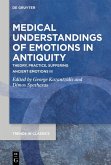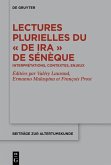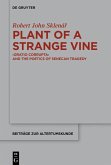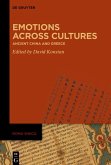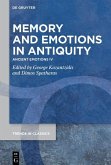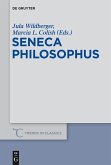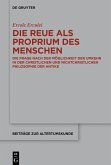A crucial document to penetrate Seneca's discourse on the self in its embryonic stages, the Ad Marciam is here taken seriously as an engaging attempt to direct the persuasive power of literary models and rhetorical devices toward the fundamentally moral project of healing Marcia's grief and correcting her cognitive distortions. Through close reading of the Latin text, this commentary shows that Seneca invariably adapts different traditions and voices - from Greek consolations to Plato's dialogues, from the Roman discourse of gender and exemplarity to epic poetry - to a Stoic framework, so as to give his reader a lucid understanding of the limits of the self and the ineluctability of natural laws.
Dieser Download kann aus rechtlichen Gründen nur mit Rechnungsadresse in A, B, BG, CY, CZ, D, DK, EW, E, FIN, F, GR, HR, H, IRL, I, LT, L, LR, M, NL, PL, P, R, S, SLO, SK ausgeliefert werden.



